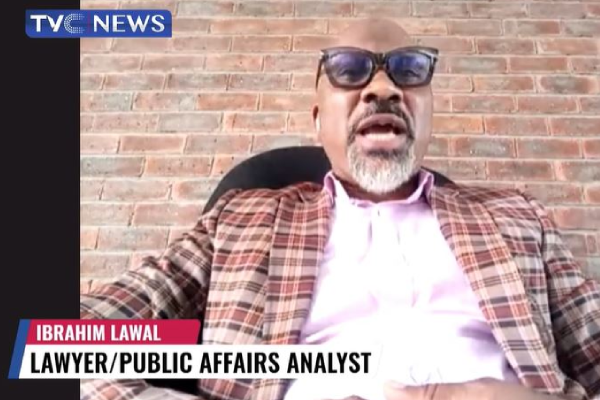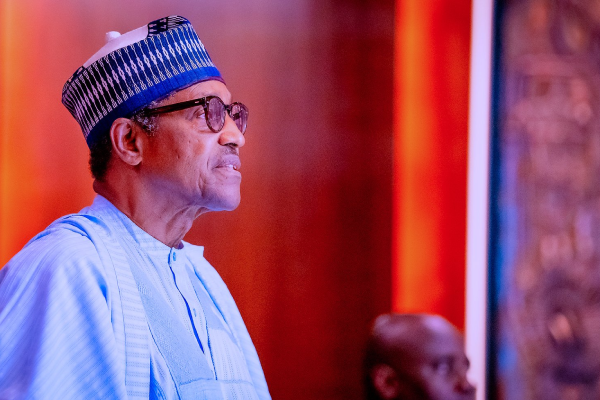The candidacy of Governor Gboyega Oyetola of Osun as the All Progressives Congress (APC) candidate in the July 16 governorship election was nullified by a Federal High Court in Abuja on Friday, September 30.
Justice Emeka Nwite, in a judgment, nullified the candidacy of Mr Oyetola and his deputy, Benedict Alabi, on the grounds that Governor Mai Mala Buni of Yobe, who submitted their names to the Independent National Electoral Commission (INEC) violated the provisions of Section 183 of the Constitution of the Federal Republic of Nigeria and Section 82(3) of the Electoral Act, 2022.
On TVC’s This Morning with Yori Folarin, Lawyer/Public Affairs Analyst Ibrahim Lawal stated that the judgment of Honorable Justice Nwite surprised most people because in the court hierarchy, when a matter is settled at the Supreme Court, it is incumbent on the lower court to follow such decisions.
“This issue, on which Justice Nwite ruled, was settled in the case of the Ondo state governorship election petition, which involved the PDP, which is also the plaintiff in this case.
“The same issue the learned SAN brought before the court was that Governor Buni could not exercise another executive path because the Supreme Court’s court of appeals emphasized that the issue of a political party’s nomination signature is simply a notification to INEC, and that the issue of sponsorship and nominations concludes at the state congress where party members choose their preferred candidate. We raised this problem to the Honorable Justice Nwite’s attention because, in light of this ruling, the court cannot rule that the action was improperly pursued.
[wonderplugin_video iframe=”https://youtu.be/oN1U5Vbzqg8″ lightbox=0 lightboxsize=1 lightboxwidth=960 lightboxheight=540 autoopen=0 autoopendelay=0 autoclose=0 lightboxtitle=”” lightboxgroup=”” lightboxshownavigation=0 showimage=”” lightboxoptions=”” videowidth=600 videoheight=400 keepaspectratio=1 autoplay=0 loop=0 videocss=”position:relative;display:block;background-color:#000;overflow:hidden;max-width:100%;margin:0 auto;” playbutton=”https://www.tvcnews.tv/wp-content/plugins/wonderplugin-video-embed/engine/playvideo-64-64-0.png”]
“Second, the stated part of the Constitution, 183, essentially states that anyone holding an executive office is not permitted to likewise hold another executive position.
“According to the Supreme Court, nothing can be added to, subtracted from, or modified from Section 177 of the Constitution, which governs who is eligible to run for president or governor of any state. The clause is quite clear, thus it has no bearing on this issue.
“All of these issues had been trashed at the Supreme court.
Mr Lawal stated that he was confident that the case would be overturned if it reached the Appeal Court.
He went on to say that in election cases, when decisions are made in lower courts, it does not always matter what effect such decisions will have.
Mr Lawal went on to say that because of judicial pronouncements, section 682 of the Electoral Act was not violated in any way.
“For somebody to qualify or stand for election, he must be sponsored by the political party.
“The majority judgment of the Supreme Court argues that the issue of nomination of candidate rests squarely with the members of the party, that the communication to INEC by the national body or the chairman or secretary of the party is just a mere information, that is not sponsorship or nomination, and as such you cannot now nullify the efforts of people in that state to have agreed to nominate a particular candidate on the basis of the fact that somebody signed.
According to the Lawyer, this reasoning is consistent with common sense, as the Supreme Court went on to say that the fact that someone gave incorrectly, the fact that someone signed, there is nothing in the law that prescribes a sanction for that infraction, and as such, they cannot be punished because they cannot be made to suffer.
The PDP filed the suit on April 7 through its counsel, Kehinde Ogunwumiju, SAN, challenging Mr Oyetola’s nomination and sponsorship as the APC’s duly nominated candidates for the recently concluded governorship election, in which Ademola Adeleke was declared the winner by INEC.
Mr. Oyetola’s attorney, Kunle Adegoke, SAN, contested the suit’s legitimacy on a number of grounds, including that the PDP had jurisdiction to file the lawsuit and that it was time-barred.
But Mr Ogunwumiju argued that the plaintiff (PDP) rightly commenced the suit under Section 285(14) (c) of the Constitution of the Federal Republic of Nigeria 1999 (as amended).
Delivering the judgment, Mr Nwite agreed with the submissions of the PDP counsel and declared as null and void, the nomination of Messrs Oyetola and Alabi by the APC.





